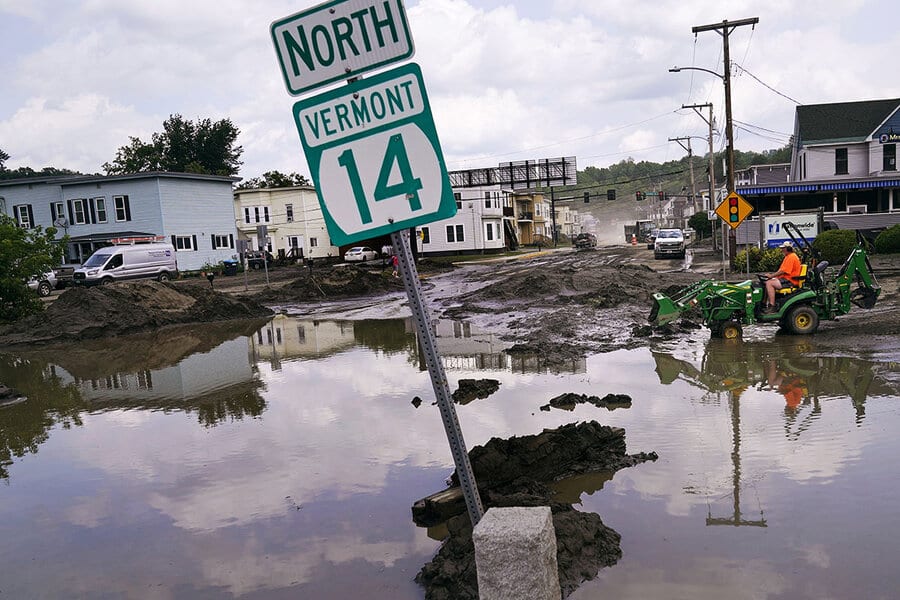
Does Congress Need to Commit to Addressing Climate Change? (H. Res. 424)
Do you support or oppose this bill?
What is H. Res. 424?
(Updated July 28, 2020)
This resolution suggests that the House of Representatives needs to work constructively on addressing climate change by embracing the tradition of American ingenuity, innovation, and exceptionalism. It calls for the House to embrace broadly supported private and public solutions to address the causes and effects of climate change to mitigate activities that worsen the problem.
In determining that these policies should be pursued, the House would acknowledge several findings that spurred the introduction of this resolution, including the following:
It is a conservative principle to conserve and be stewards of the environment, which includes planning for market forces and utilizing science to justify policies;
Such conservation and stewardship is critical for the preservation of the environment for future generations;
There’s been a marked increase in extreme weather across the U.S., leading to drought, floods, wildfires, and water shortages. These have had negative impacts in all regions of the country, and are expected to worsen;
Increased pollutants contribute to environmental and health impacts at all levels of society, from localities to the nation as a whole;
Climate change poses a threat to national defense, as its effect on the global level aggravate poverty and environmental degradation, political instability, and social tensions;
If unaddressed, the consequences of climate change will negatively impact all Americans, but particularly the most vulnerable populations. It will hurt productivity in many sectors of the economy, and burden future generations with greater economic and environmental challenges;
All efforts taken to address climate change shouldn’t constrain the U.S. economy — particularly with regard to global competitiveness;
There is an increasing recognition that we can and must take meaningful and responsible action now to address this issue.
As a simple resolution, this legislation would not advance beyond the House of Representatives if it were to pass, and is not binding.
Argument in favor
While it doesn’t actually call for the implementation of these policies, this bill lays out a path forward for Congress to act on climate change. It acknowledges both the needs of the U.S. economy and the need for current generations to be responsible stewards of the environment.
Argument opposed
First of all, this resolution doesn’t offer any specific policies to address the problem, so it’s pretty much meaningless. But it also makes numerous assumptions about the causes and effects of climate change, and doesn’t adequately weigh the cost to the economy of taking action.
Impact
All Americans — including current and future generations, government and the private sector, and the House of Representatives.
Cost of H. Res. 424
A CBO cost estimate is unavailable.
Additional Info
In-Depth: The lead sponsor
of this resolution, Rep. Christopher Gibson (R-NY), believes that:
“All too often, the conversation about appropriate and balanced environmental stewardship gets caught up partisan politics. Yet, this conversation is key to the preservation of our great country for generations to come; as important as ensuring we have fiscally responsible policies to secure our future.”
Rep. Gibson has been joined by 10 other House Republicans who have signed on as cosponsors to this bill.
Of Note: This resolution was introduced the week prior to Pope Francis’ visit to Washington D.C., where he would become the first Pope to address a joint session of Congress. Within his speech, Pope Francis called for action to “avert the most serious effects of the environmental deterioration caused by human activity.”
Media:
- Sponsoring Rep. Christopher Gibson (R-NY) Press Release
- The Hill
- International Business Times
- New York Times
- ThinkProgress
- Times Union
(Photo Credit: Flickr user Jeff Pang)
The Latest
-
 IT: 🛢️ New Vermont measure could charge Big Oil for climate damages, and... Do you think Trump is guilty?Welcome to Friday, May 10th, friends... Vermont could be one of the first states to hold Big Oil accountable for the damages read more...
IT: 🛢️ New Vermont measure could charge Big Oil for climate damages, and... Do you think Trump is guilty?Welcome to Friday, May 10th, friends... Vermont could be one of the first states to hold Big Oil accountable for the damages read more... -
 Stormy Daniels Takes the Stand in Trump Hush Money TrialUpdated May 9, 2024, 5:00 p.m. EST Adult film star Stormy Daniels, also known as Stephanie Clifford, spent two days on the stand read more... Law Enforcement
Stormy Daniels Takes the Stand in Trump Hush Money TrialUpdated May 9, 2024, 5:00 p.m. EST Adult film star Stormy Daniels, also known as Stephanie Clifford, spent two days on the stand read more... Law Enforcement -
 Vermont Measure to Charge Big Oil for Climate DamagesWhat’s the story? Vermont is expected to become one of the first states to hold Big Oil accountable for the damages caused by read more... Environment
Vermont Measure to Charge Big Oil for Climate DamagesWhat’s the story? Vermont is expected to become one of the first states to hold Big Oil accountable for the damages caused by read more... Environment -
 IT: Trump's 2016 'deny, deny, deny' campaign strategy, and... How can you help the civilians of Ukraine?Welcome to Wednesday, May 8th, weekenders... As Trump's hush money trial enters it's third week, the 2016 campaign strategy of read more...
IT: Trump's 2016 'deny, deny, deny' campaign strategy, and... How can you help the civilians of Ukraine?Welcome to Wednesday, May 8th, weekenders... As Trump's hush money trial enters it's third week, the 2016 campaign strategy of read more...
 Climate & Consumption
Climate & Consumption
 Health & Hunger
Health & Hunger
 Politics & Policy
Politics & Policy
 Safety & Security
Safety & Security
